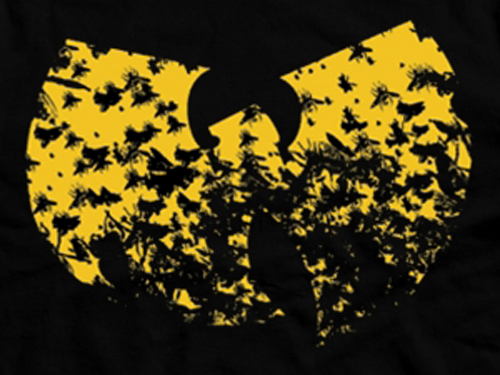Music
45 RPM: Wu-Tang Clan (Pt. 3)

Ghostface Killah – Ironman (1996)
The Divine never told RZA to build an ark, so he lost his basement studio to a flood, and as a result had to use a different studio to record Ironman. Hence the sound: more polished and clear than RZA’s previous Wu beat hauls. The Lord saw that it was good, that this was the next step in the entropic growth of the Clan. Ghostface, the last central member to release a solo album, put out Ironman right before the next Wu-Tang Clan collaboration. Not only were there pressures to live up to Liquid Swords, Tical, Only Built, and Return of the 36 Chambers, but who wanted to hear a rehash of any of these efforts? In addition to these provisos, Big Ghost had to make something to offer a prelude to Wu-Tang Forever, to ease audiences into the evolution that four years often extracts from artists. Did all this happen on Ironman?
The short answer–and the only answer–is yes. Everyone stepped up for this release, not necessarily to be better than before, but to be more technically and sonically dexterous than before. RZA’s beats pick up off of Only Built, even more layered with horns and strings and continuing to dive into soul-music territory. But unlike his work with Rae, these beats aren’t as ‘cinematic’–they are catchier, smoother, sleeker than any record before. The sound is rawer to match Ghostface’s personality, adding scratches and taking away dense soundscapes that suffocate albums like Liquid Swords.
The shaky keyboards make their return in the masterfully crafted “Fish,” in addition to the Ghost epic “The Soul Controller,” which layers and switches samples over one another over time, including what sounds like a 64-bit acoustic guitar. RZA’s classic fixation with haunting piano appears on “Camay” and “Box in Hand,” and there is more of the shrill synth on “Winter Warz” a la Liquid Swords.
Ghost’s lyrics range from his godly phallus (“Wildflower” features the lyric “remember when I long-dicked you and broke your ovary?”) to appreciating his maternal bond in the classic “All That I Got is You” (proto-Kanye motherlove), all of this in addition to the hoodrat themes. Members and affiliates offer some of their best verses for the album (even Cappadonna slays in “Winter Warz”), but the spotlight goes to Ghost and Rae. After the success of his previous album, Raekwon the Chef understood he had to verbally outdo himself. He shines on “Assassination Day,” “Daytona 500” and his solo song “The Faster Blade.” The credit here goes to the group as a whole, watching them lift Ghost to match the quality of the previous Wu releases.
Wu-Tang Clan – Wu-Tang Forever (1997)
In days of yore, the LP only held so much data. An album would be about 40-45 minutes in length, because that’s what fit. Otis Redding or David Bowie might’ve been writing and recording dozens of songs for a particular album, choosing only the best to press and sell. Someone, at some point in time (if I open up my browser to research, this review will never see the light of day) decided that one LP wasn’t enough. Cue the double album: sometimes brilliant, oftentimes bloated. Wu-Tang Forever teeters upon this line for an uneven two hours, slim 45-minute disc one vs. the longer-than-36 Chambers disc two.
The album renders itself essential only by offering classic Wu tracks. “Triumph” contains the entire Clan + Cappadonna, in addition to a minimalistic-yet-epic beat as the landscape for one of Inspectah and RZA’s best verses. “As High As Wu-Tang Get” and “The MGM” pack a lot of punch into two-and-a-half minutes, while some longer tracks sustain themselves with engaging production (as with Ms. Roxy’s seductive vocals and the seizured violin line in “Reunited”). “Maria” has a violin of its own, in addition to modern computer sounds, laid-back despite (or due to) ODB’s presence. “A Better Tomorrow” works with its positivity, impressive emcee chemistry and faint, haunting lounge orchestration.
There are also orgasm soundbytes and gunblast noises. There’s also “Heaterz,” five-and-a-half minutes of one of the Clan’s most hollow beats and a cringeworthy Cappadonna verse. There are intros and outros, Puffy disses and monologues that clog up the flow and the punch of the record(s). There are also a handful of songs that are so bland there’s no opinion to be had either way. Though not the most skillful or mature emcee, Ol’ Dirty’s presence on more than the meager five tracks could’ve brightened things up, or maybe more “themed” or narrative tracks to distinguish one song from another. One could boil Forever down to one disc’s worth of classic Wu, but why bother? For four years, a Clan member would record a solo album littered with guest spots from other members and affiliates.
It’s not that they were ever apart to begin with, just that a solo album was the vision of one person with support from a dozen others. Here, we have ten dudes not sure what to do. Luckily, the Wu are four years sharper with more personality and dexterity than 36 Chambers, and though it isn’t a masterpiece in the tradition of Liquid Swords or Ironman, it’s essential Wu-Tang to the bone.